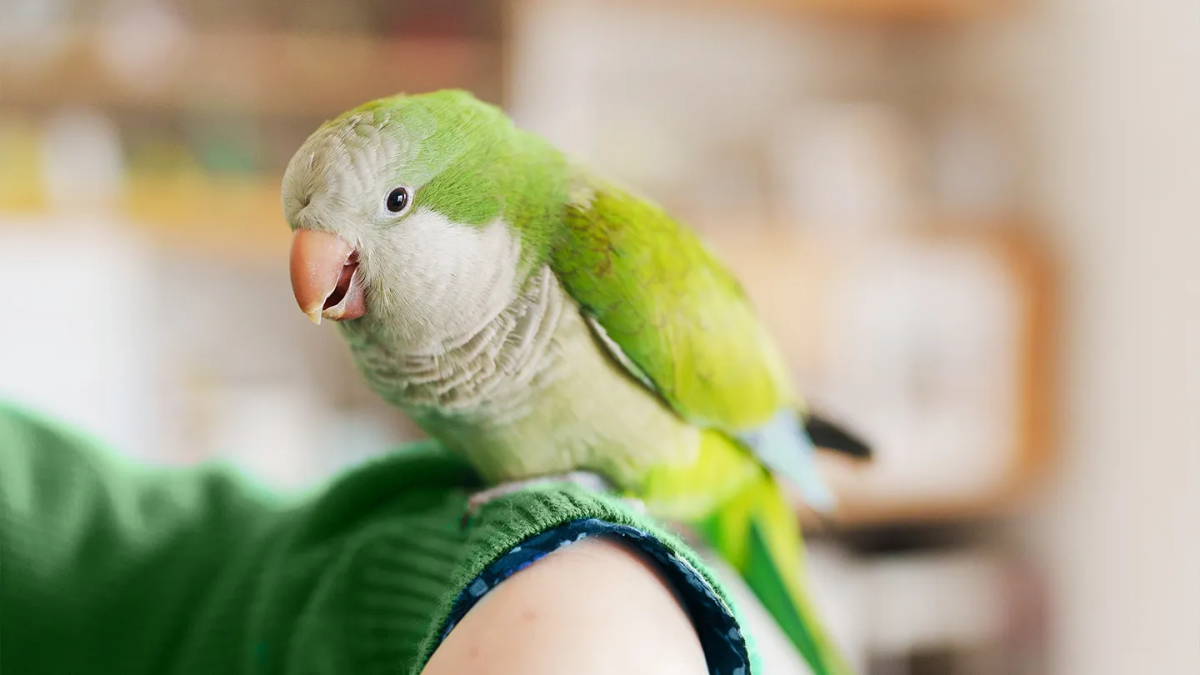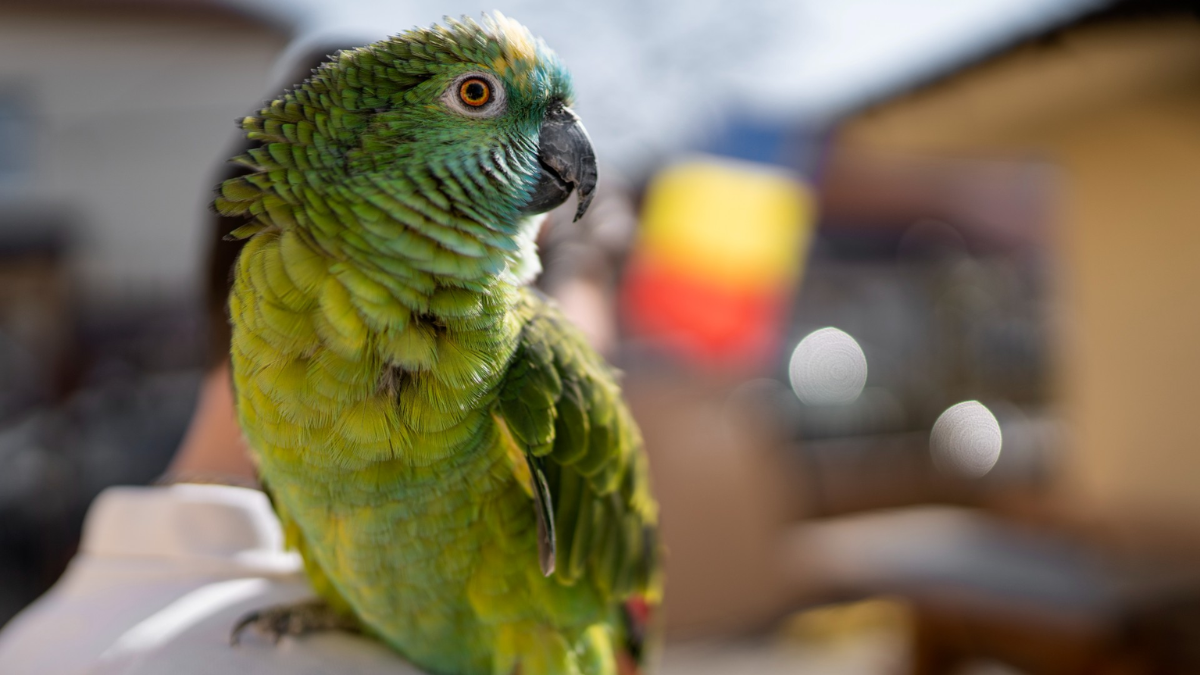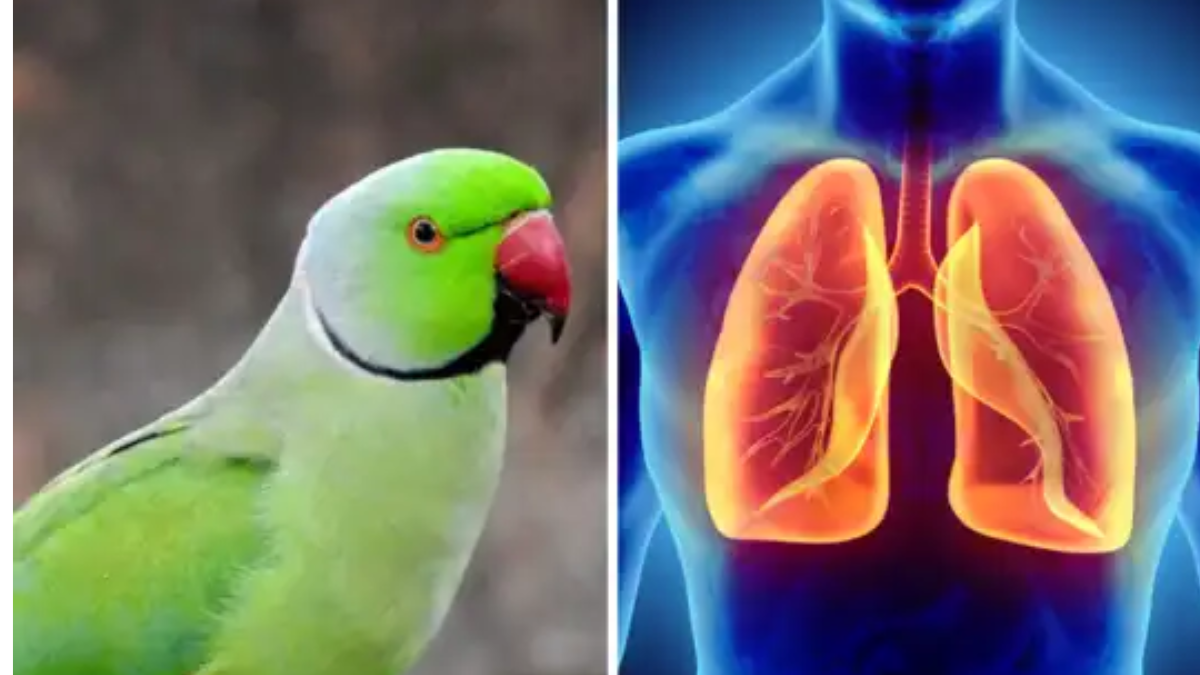
A 26-year-old man from China’s Zhejiang Province recently stunned doctors when his unrelenting cough and high fever turned out to be something far rarer than a seasonal infection. What initially seemed like a common respiratory illness evolved into a medical mystery, eventually traced to a rare bacterial infection known as psittacosis, also called parrot fever. The case sheds light on an unusual yet potentially serious disease linked to exposure to birds, underscoring the need for awareness and timely diagnosis.
Table of Content:-
A Mysterious Illness with Unusual Clues
The young man visited a local hospital after battling a severe cough and fever for more than a week. Initially, doctors suspected a routine case of viral pneumonia or even COVID-19, especially after a chest scan revealed “ground-glass opacities” — a pattern commonly seen in both viral lung infections and certain other conditions. However, his condition failed to improve even after a standard course of antibiotics, raising red flags among physicians.

This prompted further investigation. Laboratory testing of lung samples eventually revealed the presence of Chlamydia psittaci — the bacteria responsible for psittacosis. Interestingly, his exposure likely occurred when he accidentally inhaled dust contaminated with chicken faeces, not from parrots as the disease name might imply.
Also Read: Valley Fever Outbreak In The US: Know Symptoms, Causes & Treatment
What Is Psittacosis?
Psittacosis is a rare infectious disease that people can contract from birds. The causative bacterium, Chlamydia psittaci, is different from the one responsible for the sexually transmitted infection chlamydia, although both belong to the same bacterial family. The infection primarily spreads when people inhale tiny particles from bird droppings, feathers, or respiratory secretions.
Despite its name, psittacosis isn’t restricted to parrots alone. It can also originate from other birds such as pigeons, chickens, ducks, and even turkeys. The infection is more common among individuals who frequently come into contact with birds, whether as pet owners, poultry workers, or veterinarians.

Symptoms That Mimic the Flu
Psittacosis can easily be mistaken for a bad cold or flu. Common symptoms include:
- Persistent high fever
- Cough and nasal congestion
- Muscle aches and headaches
- Nausea, vomiting, or diarrhoea
- Fatigue and weakness
- Chest pain and shortness of breath
- Occasionally, skin rashes
In severe cases, the infection can lead to pneumonia and even respiratory failure if left untreated. Because symptoms overlap with many other common illnesses, diagnosis is often delayed unless doctors specifically test for the bacterium.

A Case of Misdiagnosis and Recovery
In the Chinese man's case, once psittacosis was confirmed, his treatment was quickly changed to target the bacteria more effectively. He was given a combination of omadacycline and azithromycin, two antibiotics known to work against Chlamydia psittaci. Within two weeks, his symptoms dramatically improved. His cough subsided, his fever dropped, and follow-up scans showed significant lung recovery.
This successful recovery highlights the importance of considering less common infections when routine treatments fail. Timely diagnosis and the right antibiotic therapy can be life-saving.
Who’s at Risk?
Though rare, certain groups of people are more likely to contract psittacosis, particularly those who have frequent contact with birds. High-risk populations include:
- Poultry farm workers
- Bird owners and pet shop employees
- Veterinary professionals treating avian species
- Employees in bird processing or cleaning facilities
Preventative measures include wearing protective gear, maintaining hygiene when handling birds, and ensuring proper ventilation in areas with bird droppings.
Bottomline
Psittacosis is a reminder that not all respiratory infections are what they seem. In this age of global travel, emerging zoonotic diseases, and heightened awareness of respiratory health, unusual infections like parrot fever shouldn’t be overlooked. For healthcare professionals, maintaining a broad differential diagnosis — especially when patients don't respond to initial treatments — can make all the difference. And for the rest of us, it’s another reason to be cautious around birds and to pay attention to persistent symptoms that don’t improve with standard care.
Also watch this video
How we keep this article up to date:
We work with experts and keep a close eye on the latest in health and wellness. Whenever there is a new research or helpful information, we update our articles with accurate and useful advice.
Current Version